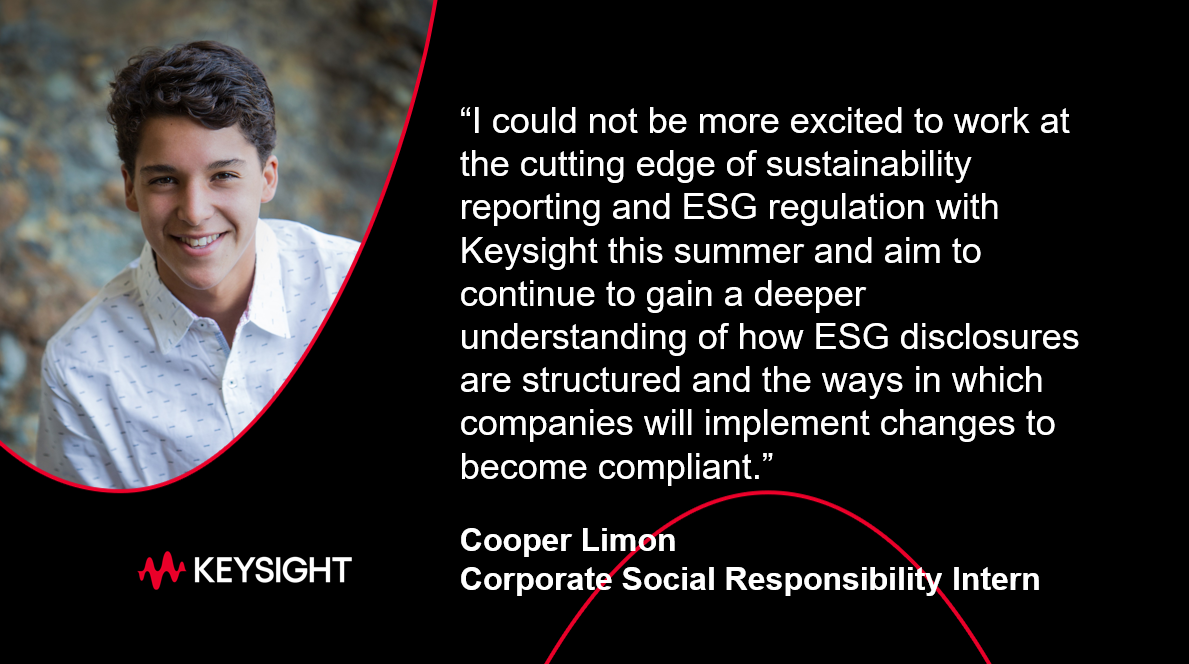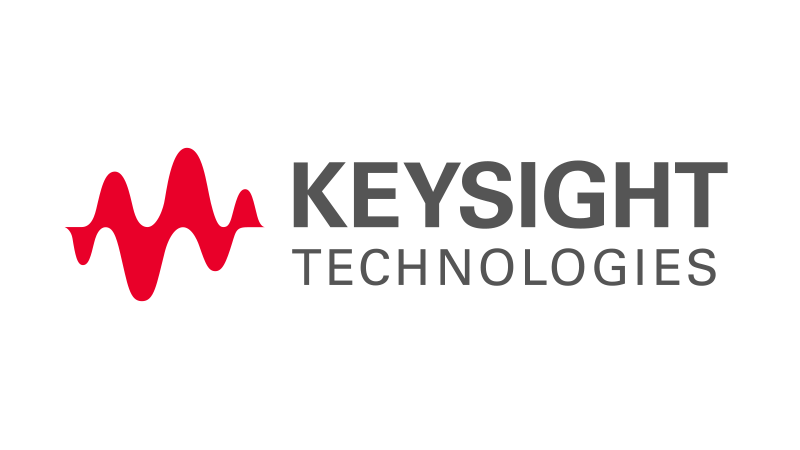CSR Intern Reflections: Researching the Corporate Journey From Voluntary to Mandatory ESG Reporting
By Cooper Limon — Bachelor of Science in Environmental Policy and Management, University of California, Berkeley

The amassing amount of diverse environmental, social, and governance (ESG) ratings, standards, methodologies, frameworks, conventions, associations, and policies have made it very difficult for investors, consumers, academics, and regulators to have a comprehensive understanding of what ESG metrics are important and how to measure corporate impact. As an Environmental Policy and Management student at UC Berkeley who is highly interested in ESG policy and regulation, my experiences as a Keysight Corporate Social Responsibility (CSR) Intern this summer will provide me with greater insight into changes in the global ESG reporting landscape.
Voluntary ESG Reporting
Voluntary ESG reporting frameworks have long-provided companies with the option to increase the visibility of their ESG performance. From a customer perspective, these disclosures have helped them identify companies that align with their values and own corporate ESG goals. From an academic and nonprofit organization point of view this data has been used to study trends, benchmark progress, and identify gaps in which policy and regulation can fill. And from the investor point of view, ESG disclosures have been a new source of information to identify risk, generate increased opportunities for returns, and serve as the backbone for new financial products, such as ESG indexes.
Major voluntary sustainability reporting frameworks, like the Global Reporting Initiative (GRI), Sustainability Accounting Standards Board (SASB), Task Force on Climate-Related Financial Disclosures (TCFD), CDP (formerly Climate Disclosure Project), and others have served as platforms for companies to disclose their ESG performance in a concise structured manner. Each of these frameworks has a unique approach and purpose but have enabled some level of comparable transparency between the company’s corporate sustainability efforts to investors, consumers, and other stakeholders to review.
However, times are changing and the dawn of mandatory ESG reporting is arising.
Rise of Mandatory ESG Reporting
Mandatory ESG reporting efforts are forming in the European Union (EU) through the EU Sustainability Reporting Standards (ESRS), in the U.S. through the Security Exchange Commission (SEC) Climate Disclosure Rule, and across the international scene through the International Sustainability Standards Board (ISSB). These mandatory ESG regulatory reporting frameworks look to leverage existing voluntary disclosures, domestic sustainability policies, international conventions and agreements, and other data points, combining to create a myriad of comprehensive sustainability metrics.
Mandatory ESG disclosure frameworks will provide stakeholders with more comparable and targeted ESG data across corporations that can help model impact, project trends, determine risk, and make daily sustainable choices. Requiring companies to disclose their ESG performance represents a tectonic shift in sustainability regulation and will open many new opportunities for innovation, impact studies and overall societal change while also strengthening the resilience of companies and the welfare of workers and communities throughout vast corporate value chains.
How Companies Can Prepare
With the expected transition to mandatory ESG reporting, companies that have never reported ESG data are building capacity, enhancing their sustainability data gathering and accounting capabilities, and setting strategic sustainability roadmaps to provide focus for relevant policies, targets, and key performance indicators (KPIs) they need to construct. Companies who already report on sustainability metrics, will have to conduct a gap analysis assessment and determine their transition plan from their current disclosure approach to the new requirements.
Keysight, a company falling into the latter of these two perspectives, is looking to map their already broad disclosure set to the pending requirements to ensure they are prepared to be in full compliance with all the standards that are expected to pass into law over the next couple of years.
In fact, a large part of my internship this summer has been conducting several gap analyses between the proposed ESRS standards, the new GRI Universal Standards, and potentially the Climate Disclosure Rule and the ISSB with what Keysight currently reports on in order to identify any policies, targets, actions, or KPIs the company needs to incorporate into its operations to guarantee compliance with these pending disclosure regulations.
Looking Forward with Keysight
Keysight is a company that has long recognized the importance of sustainability and ethical governance and ‘Social Responsibility’ is among the core values of the company’s leadership model. The firm’s actions today as an ESG first mover are a testament to the company’s historical culture as a socially responsible business. Working with the Keysight CSR team for over a month now has shown me how the company’s six main CSR pillars — Ethical Governance, The Environment, Responsible Sourcing, Our People, Communities, and Our Solutions — are woven throughout the company’s entire operations stack, from the highest level of governance to the suppliers and customers we work with. From reporting and compliance, to community outreach and engagement, the Keysight CSR team strives to maintain the company’s reputation as an environmentally conscious, socially responsible, and ethically governed organization from the products it designs and manufactures to the employees hired and areas they work in.
Keysight is positioned better than ever to make a meaningful impact on the world through its technological solutions and CSR actions in this time of increasing demand for ESG reporting. I could not be more excited to work at the cutting edge of sustainability reporting and ESG regulation with Keysight this summer, and aim to continue to gain a deeper understanding of how ESG disclosures are structured and the ways in which companies will implement changes to become compliant.

